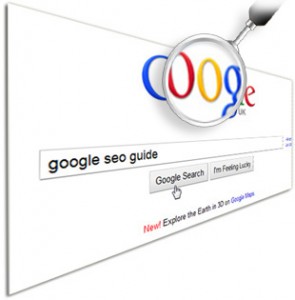Tips for On Page SEO
On Page SEO is one half of the two types of SEO you can undertake for your website. The other is Off Page SEO. Here are some On Page SEO tips to help get your website ranked in the search engines.
Update Your Website Content Regularly
Search engines like new stuff! Try to keep your website content fresh with regular blog posts, latest updates and new page content. What is regular? Well that depends on your site, your business and your customers. Any site should be updated weekly at a minimum, but a high traffic site may require updates more than once daily.
New content not only keeps search engines interested, but also makes your site more interesting for your regular visitors, and also build rapport with your clients.
Meta Tags Matter!
All major search engines now ignore the Keywords tag. Instead focus on keyword rich and catchy Title and Meta Description tags. See below for more details.
Using Sitemaps
Sitemaps act like a navigation system for search engines. They let the search engines know what your website structure is and how to get from page A to page B.
A number of free sitemap generators are available. XML Sitemaps have a free tool you can use or if you’re a WordPress user, you can use a plugin like Google XML Sitemaps generator.
Unique, User Friendly Content on Website
Copying and pasting content from another website doesn’t work! If you are doing this, 1) it’s stealing (of course if you don’t have permission), and 2) it doesn’t really help your search engine ranking unless you already have great ranking.
Keyword Research
On page SEO relies heavily on keywords. Before you start writing your page content, you must chalk out which keywords are relative to your page. Think about synonyms of these keywords and try to include these keywords and synonyms in your webpage.
Keyword Density
Optimal keyword density is a contentious issue. Too many keywords and your page looks like spam, too little and the search engines don’t know what your page is actually about. A reasonable keyword density is around 3% but no more than 5%.
Keyword density tool are available online to check your web page’s keyword density.
HTML Tags
HTML is the programming language that makes up a webpage. There are a number of tags that are used to tell your browser how to display the page, and these are also picked up by search engines.
Heading Tags
Heading tags are used for styling headings – H1, H2, H3 and so on. Every page in your website should have your keyword in the H1 tag, then use subheadings for subtopics, with some keywords referenced where possible.
Alt Image Tags
Alt image tags are alternate text for images which enable screen-readers, search engine crawlers (like Google Bot) or non-image-ready browsers use. These are very essential for SEO.
Title Tags
Title tags are a bit like a one line advertisement for your webpage as title tags are used by search engines as the webpage title in search results. Although search engines don’t give much weight to title tags when ranking your site, it is important to create descriptive title tags to entice searchers to click on your page when viewing search results.
Google displays a maximum of 69 characters, Yahoo displays up to 72 characters while Bing shows 65 characters for titles in search engine results.
Description Tag
The description tag is somewhat similar to the title tag in that it is used to describe your page in search engine results. There should be a relevant and descriptive description for each webpage as it can help persuade the searcher to visit your page.
Google displays 156 characters, Yahoo 161 characters and Bing 150 characters in the webpage description.
Keywords Tag
Keywords tags, abused for years so all major search engines now ignore the keywords tags completely.
Internal Links
Linking keyword phrases to other pages within your site can help search engines navigate your website and influence relevancy. Internal linking is usually done by simply linking a keyword or phrase like off page SEO to a relevant page on your site. Note that this only works for links within your site; linking to external sites does not help your SEO.
Robots.txt
Robots.txt is a simple text file added to your website root directory that allows or disallows search engine bots through your site. If you have private content or a dynamic website that creates lots of duplicate content, you can stop Google and other search engines from indexing those pages in their results.
Flash
Search engines don’t pick up flash or images by default, so all rich media should be optimized with alternative text where possible. This means using alt image tags or alternate flash content. You can find out how to use alternate flash content from Adobe or see above on how to utilize alt image tags.
Cibol Web Solutions is one of the leading Website Design / Development, SEO Company of North India with clients across the globe. Our services help create engaging online presence for your businesses & help you rank your website higher in various search engines (google, yahoo, bing etc.).
Our Services
- Website Design / Redesign / Development
- Flash Websites
- Ecommerce Stores / Online Shops / Shopping Carts
- CMS Websites in WordPress, Joomla, Drupal, Moodle, Smarty, Oscommerce, Magneto etc
- Search Engine Optimization
- Search Engine Marketing
- Link Building Services
- Directory Submission / Regional Directory Submission
- Guaranteed Directory Listing / High PR Directory Submission
- Deep Link Submission
- Article Submission / Blog Submission / Press Release Submission
- Social Bookmarking Services
- Social Media Marketing
- Search Engine Submission
- Video Submission
- RSS Feed Submission
- Google Indexing
- DMOZ Submission
For more information visit us at: http://www.cibol.net
Call Us: +91 172 5074190 | +1 646 652 0732 (Ext: 300) | Online Contact Form | Skype: cibollive



















